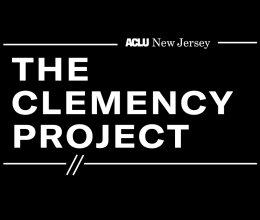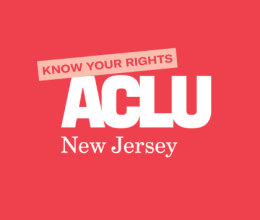
New Jersey Gov. Phil Murphy (D) just issued a major executive order that gives incarcerated people a chance at freedom.
The order creates an advisory board to review petitions for clemency and expedites consideration for those with lived experience in certain categories — such as victims of domestic violence and those serving excessive sentences. That is a step in the right direction to address the harms of mass incarceration.
Clemency — whether through reduced sentences or pardons — is a powerful tool to mitigate injustices in the criminal legal system. An important part of the fabric of our nation, clemency was designed to address flawed legal processes, account for changes to laws and offer opportunities for mercy. In my more than 15 years working to build a criminal legal system that centers humanity — including at the Innocence Project and as the current executive director of the ACLU of New Jersey — I have seen firsthand just how crucial this tool is to achieve justice.
Categorical clemency, meanwhile, offers chances at freedom for groups of people. Importantly, each individual case still gets a review. Categorical clemency simply helps streamline the process.
But clemency powers are historically underutilized at the state level. Governors often fear backlash inflamed by pro-prison lobbyists and politicians.
Governors have a responsibility to leverage this landmark authority. They have the power to counter grave injustices in our legal system, slash our incarcerated population, reunite families and fundamentally transform communities. It’s past time to use it.
To understand the importance of clemency, it’s crucial to look to our history. Clemency was incorporated into our nation’s founding as an essential method to maintain the integrity of the criminal legal system.
Every single state in the union has some form of executive authority to reduce sentences or pardon those convicted of crimes or facing criminal charges. And for many decades, governors employed clemency regularly. But in the late 1900s, clemency declined significantly, fueled by tough-on-crime policies. In New York, for example, from 1914 to 1924, the state averaged about 70 commutations each year, according to a report by NYU Law. Then, from 1990 to 2019, New York only granted 70 commutations total.
In April, an analysis from the national ACLU found that only 20 of 40 states with reported clemency data performed any pardons in 2022 — and just 10 of those states granted commutations.
Notably, there has been an uptick in the use of clemency in recent years, particularly for marijuana-related offenses. For instance, in 2022, in a remarkable move, Oregon Gov. Kate Brown (D) pardoned more than 47,000 people who had been convicted on such charges and struggled to access employment and housing due to their records.
Earlier this year, Massachusetts Gov. Maura Healey (D) announced she would pursue the same path. And just last week, Maryland Gov. Wes Moore (D) announced he would pardon 175,000 marijuana convictions. Now, these hundreds of thousands of people will be able to find stable jobs and homes more easily in the future.
But there’s so much more potential for categorical clemency. For instance, Gov. Murphy’s executive order expedites petitions for incarcerated people who are survivors of domestic violence and human trafficking — many of whom were convicted for offenses against their abusive partners or were coerced into committing crimes by their partners. Without clemency, these survivors — who often experienced deep psychological, physical and emotional harm long before their crime — would spend decades more in prison.
Additionally, New Jersey will expedite petitions for people with sentences affected by excessive trial penalties — a reference to those who are serving significantly longer sentences because they opted to exercise their constitutional right to a trial rather than agreeing to a prosecutor’s plea deal. Being forced to choose between exercising fundamental rights and serving a reasonable sentence is dangerous and deeply flawed. Categorical clemency for people serving excessive trial penalties would begin to repair that harm.
There are plenty of other opportunities to utilize categorical clemency as a tool to end mass incarceration. But resistance remains. That’s because, for decades, proponents of tough-on-crime policies have played up the dangers of releasing people from prison. They continuously claim — without evidence — that reducing our incarcerated population makes us less safe.
In fact, a recent report from the ACLU-NJ proves the opposite, because peddling harmful tough-on-crime policies neither reflects reality nor the will of the people, who overwhelmingly support clemency. Research consistently shows that using commonsense mechanisms to release people from prison does not have any meaningful negative impact on public safety. For example, New Jersey has reduced its prison population by more than 50 percent since 2011 — and crime across all major categories continues to trend downward. In fact, the number of shooting victims hit a 15-year low in the state.
Clemency embodies much more than mercy — it is about mitigating injustice and prioritizing people over punishment. Categorical clemency as a decarceration tool will allow governors to make data-informed decisions about who should no longer be incarcerated and grant people a second chance.
Our nation enshrined clemency powers in our federal and state constitutions for a reason. It’s time to embrace them.
Amol Sinha is a civil rights attorney and the executive director of the ACLU of New Jersey.
This piece was originally published in The Hill.



